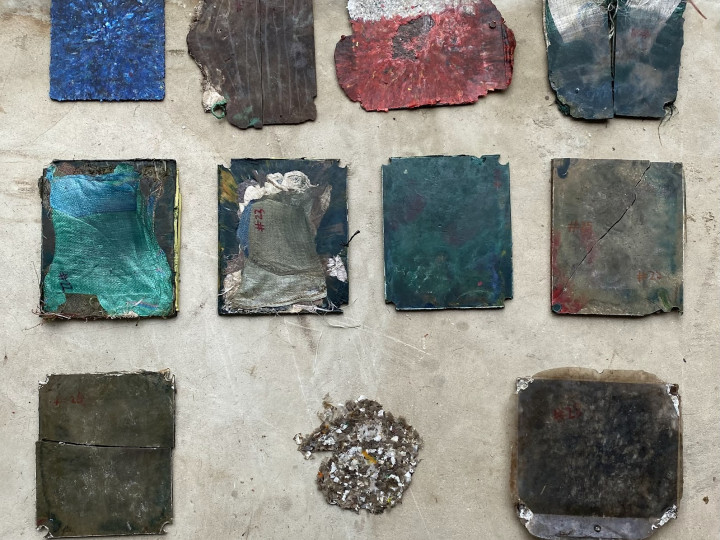Flipflopi is an organization on Lamu in Kenya. The problem on the island is that there is no working waste system, and there is an immense amount of (plastic) waste on the island. Flipflopi's vision is to upcycle low-grade plastics while involving communities in the waste management system. By doing this, they hope to establish a local economy and contribute to changing the plastic industry. The ultimate higher goal is to ban single-use plastics and thus keep the environment clean.
Flipflopi receives various streams of plastic waste and they do different things with it. For example, PET and PVC is a very high-grade material, so that can be sold to recyclers in Mombasa and Nairobi. But, HDPE and PP are low-grade plastics that are processed at FlipFlopi itself and turned into furniture and boats.
In addition, a lot of 'Magunia' ends up at FlipFlopi. 'Ma' means a lot, and 'Gunia' is the term for the (cement) bags.There are now 30,000 tonnes of Magunia in the pile at Flipflopi. The pile is too low-grade to sell, but Flipflopi is also not yet able to process it. So, our project is to develop sheet material from Magunia through a sheet press. In the end of the project, we managed as a team to develop Magunia sheets of three different types of material: PP, HDPE and LDPE. With this research, FlipFlopi is able to develop the sheet material further and create products out of the sheet material for the residents of Lamu such as boats (sailing dhows) and furniture (for the local people of Lamu).
Update:
The goal was accomplished through the development of Magunia sheets involving three different materials: PP, HDPE, and LDPE. You can see pictures of this achievement/proof of concept in the attachments, showcasing various sheets composed of these materials.
After that, we did interviews with island inhabitants to gather their opinions on the sheets and potential applications of the sheets on Lamu island. The responses varied, and caused new insights. We categorized these insights into three project goals: crafting furniture/schoolbenches for local residents, creating furniture for wealthier individuals/tourists, and producing components for boats.
To create bigger sheets for these targetgroups, we initiated a scale-up process (refer to the SolidWorks image attachment) in the Netherlands. This scale-up of the sheetpress serves as a 'blueprint' for organizations worldwide aiming to create large sheets from Magunia. Our project is open-source, so other organizations can use our results. Flipflopi's next phase is to realize this machine to start testing with larger sheets. With these larger sheets, furniture and boats will be fabricated. So, the journey will be continued!



